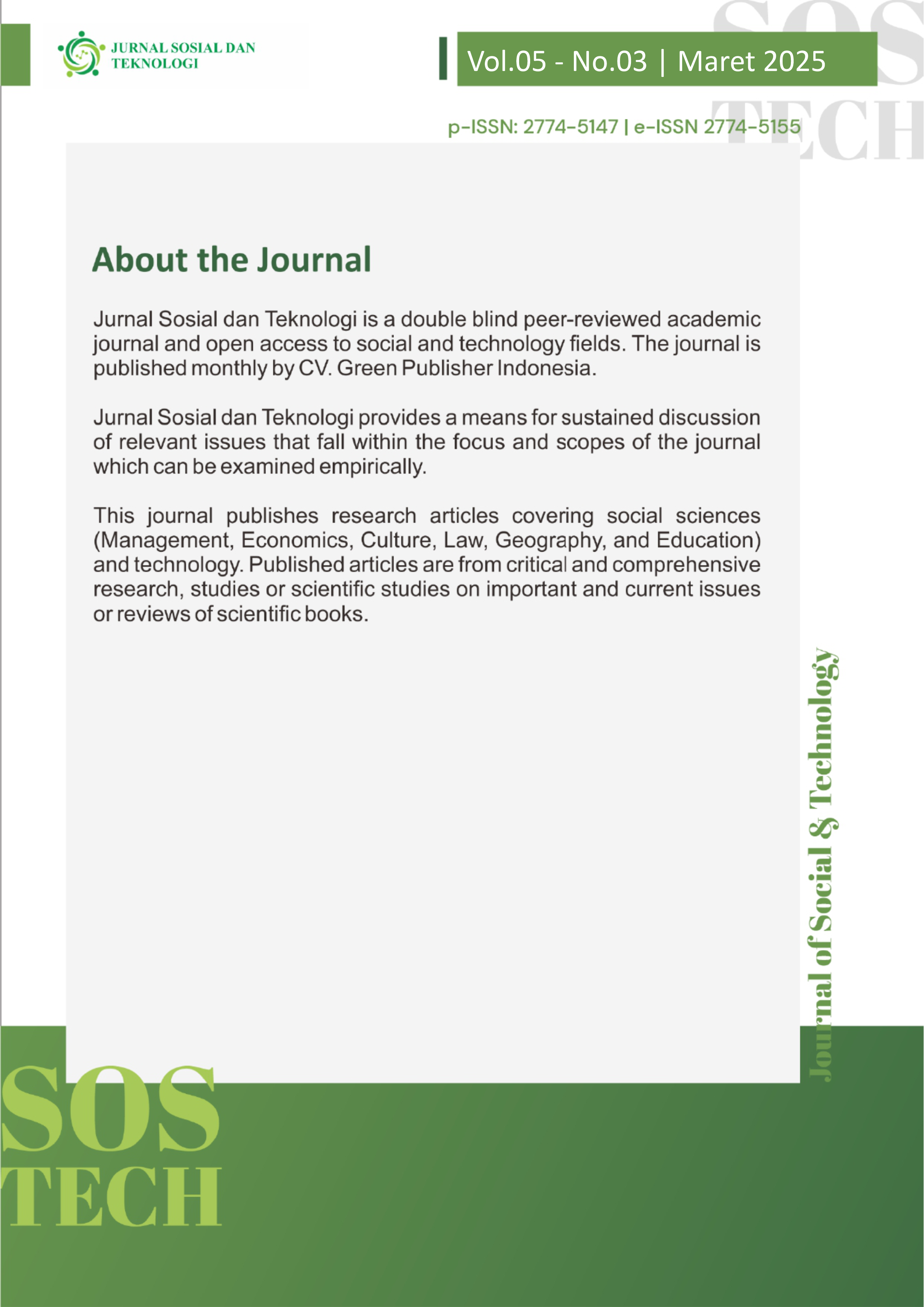President University Students’ Employability Skills: The Influence of Gender, Academic Achievement, Area of Specialization, and Perceived Value of Internship Among Accounting Students
DOI:
https://doi.org/10.59188/jurnalsostech.v5i3.32013Keywords:
employability skills, gender, academic achievement, internship, specialization, accounting studentsAbstract
This study explores how gender, academic achievement, area of specialization, and perceived value of internship influence the employability skills of accounting students. The primary issue examined is the variation in employability skills and how these factors contribute to students’ job readiness. Motivated by the need to align educational outcomes with job market demands, this research aims to provide insights that can improve internship programs and better prepare students from professional careers. A quantitative approach was employed, collecting data from 107 final-year and alumni of accounting students at President University. The analysis revealed significant relationships between the variables and employability skills, with gender, academic achievement, area of specialization, and perceived value of internship all showing a notable impact. These findings align with existing theories on employability and provide evidence that internships are a key factor in skill development. However, limitations such as the focus on a single institution and the use of self-reported data suggest the need for broader research to generalize findings.
References
Abdelrahman, R. M. (2020). Metacognitive awareness and academic motivation and their impact on academic achievement of Ajman University students. Heliyon, 6(9). https://doi.org/10.1016/j.heliyon.2020.e04192
Barbosa, A., Whiting, S., Simmonds, P., Moreno, R. S., Mendes, R., & Breda, J. (2020). Physical activity and academic achievement: An umbrella review. In International Journal of Environmental Research and Public Health (Vol. 17, Issue 16). https://doi.org/10.3390/ijerph17165972
Basith, A., Syahputra, A., Fitriyadi, S., Rosmaiyadi, Fitri, & Triani, S. N. (2021). Academic stress and coping strategy in relation to academic achievement. Cakrawala Pendidikan, 40(2). https://doi.org/10.21831/cp.v40i2.37155
Endleman, S., Brittain, H., & Vaillancourt, T. (2022). The longitudinal associations between perfectionism and academic achievement across adolescence. International Journal of Behavioral Development, 46(2). https://doi.org/10.1177/01650254211037400
Gatzka, T. (2021). Aspects of openness as predictors of academic achievement. Personality and Individual Differences, 170. https://doi.org/10.1016/j.paid.2020.110422
Gonczi, A. (2020). The new professional and vocational education. In Dimensions of Adult Learning: Adult education and training in a global era. https://doi.org/10.4324/9781003115366-3
Hartman, R. L., & Barber, E. G. (2020). Women in the workforce: The effect of gender on occupational self-efficacy, work engagement and career aspirations. Gender in Management. https://doi.org/10.1108/GM-04-2019-0062
Patel, N. H. (2015). Undergraduate internship program structures for effective postgraduation employability: A case study of a mass media arts internship program.
Ramalheira, D. C. (2015). The effect of the grade point average and of extracurricular activities on the perceived employability of business job applicants.
Seidel, A. M. (2019). Accounting Graduates’ Perceptions of the Internship’s Role in Workplace Transition and Employability Development: A Qualitative Case Study.
Simões, S., Oliveira, T., & Nunes, C. (2022). Influence of computers in students’ academic achievement. Heliyon, 8(3). https://doi.org/10.1016/j.heliyon.2022.e09004
Tabassum, N., & Nayak, B. S. (2021). Gender Stereotypes and Their Impact on Women’s Career Progressions from a Managerial Perspective. IIM Kozhikode Society and Management Review. https://doi.org/10.1177/2277975220975513
Türel, Y. K., & Dokumaci, Ö. (2022). Use of media and technology, academic procrastination, and academic achievement in adolescence. Participatory Educational Research, 9(2). https://doi.org/10.17275/per.22.50.9.2
Unicef. (2020). Towards an equal future: Reimagining girls’ education through STEM.
Yang, S., & Wang, W. (2022). The Role of Academic Resilience, Motivational Intensity and Their Relationship in EFL Learners’ Academic Achievement. Frontiers in Psychology, 12. https://doi.org/10.3389/fpsyg.2021.823537

Downloads
Published
How to Cite
Issue
Section
License
Copyright (c) 2025 Petra Greatlynieda Cahyono, Ery Yanto

This work is licensed under a Creative Commons Attribution-ShareAlike 4.0 International License.
Authors who publish with this journal agree to the following terms:
- Authors retain copyright and grant the journal right of first publication with the work simultaneously licensed under a Creative Commons Attribution-ShareAlike 4.0 International (CC-BY-SA). that allows others to share the work with an acknowledgement of the work's authorship and initial publication in this journal.
- Authors are able to enter into separate, additional contractual arrangements for the non-exclusive distribution of the journal's published version of the work (e.g., post it to an institutional repository or publish it in a book), with an acknowledgement of its initial publication in this journal.
- Authors are permitted and encouraged to post their work online (e.g., in institutional repositories or on their website) prior to and during the submission process, as it can lead to productive exchanges, as well as earlier and greater citation of published work.






